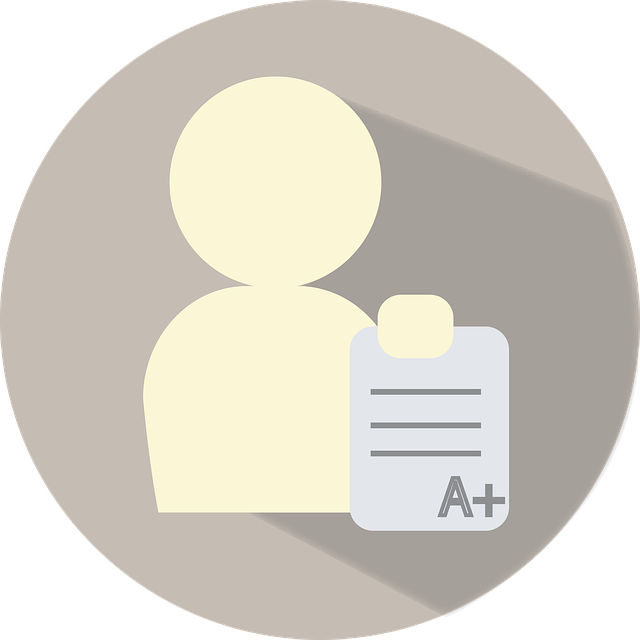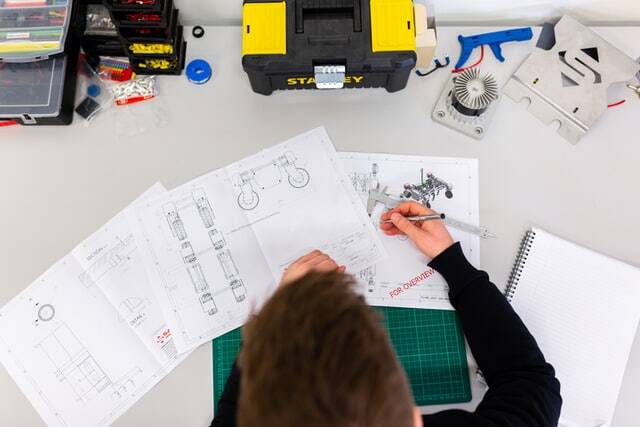Before PenningPapers, I worked as a college admissions consultant for a few years privately on my own. Before that, I worked as a tutor for kids looking to improve their SAT, ACT, and AP Lit/Lang test scores. I still remember what it was like having my pens and pencils stolen every other day —dread, absolute dread.
Well, stolen stationery aside, there were more glaring issues I noticed as a tutor and consultant that were far more important. There was a lot of anxiety around the college admissions process. Specifically, GPA seems to be the primary concern for many of my clients looking to apply to competitive schools.
Whether you’re a student, parent, tutor, or consultant reading this article, you already know what I’m talking about.
“Oh my goodness! Getting into HYPSM (Harvard, Yale, Princeton, Stanford, and MIT) is the most important thing right now and if I don’t get my grades up I’m totally going to get rejected and my parents are going to kill me!”
Practically every student
Want to know what’s even more interesting? During my time as a tutor and consultant, students who were at what you would call the middle of the distribution in GPA (AKA: dead average) were the most anxious students.
Well, hey! Fair enough, right? After all, students in the dead center may want to aim for more than community college but can’t fathom getting accepted into competitive schools as their parents want.
From what we found, the range of people who were most anxious was those in the 3.4-3.7 range. They would always ask whether their GPA was “good enough”. This is going to be the focus of this article and guide today. As you can see below, this article is split up into quite a few sections, and for good reason.
The reality is that no one can really answer the question: “is a 3.4 GPA good enough?” There are just too many variables. Even our article can’t cover every nuance. Though, we’ll try to cover as much as we can to help you understand whether your 3.4 GPA is good enough for you.
Thus, if you’re reading this and you have a 3.4 GPA, get a notebook and pen and take notes. Read through each section to determine your qualities and calculate whether a 3.4 GPA is good enough.
Table of Contents
- Is a 3.4 GPA Good Enough?
- Why Speaking With an Actual Proper Advisor and Consultant is CRUCIAL
- How to Raise Your 3.4 GPA.
Professional College Application Help.
Contact us. We'll get to you within 24 hours.
Is a 3.4 GPA Good Enough?

Before we can discuss whether a 3.4 GPA is good enough, it’s important to remember that context is important.
Who is the one with a 3.4 GPA? What major is it in? Are there any extenuating circumstances that your college admissions officers need to take into consideration such as the death of a family member or learning disabilities? Does this take into consideration the general wealth of the student?
There is a multitude of ideas that need to be considered before someone can determine whether a 3.4 GPA is good. Thus, we’ve listed some of the most important factors that come into determining whether a 3.4 GPA is good.
High School vs College GPA

A 3.4 GPA in high school, it’s very different from a 3.4 in college.
More often than not, high school is considered more difficult than college. However, everyone’s workload and college experience is different. So, the value of your GPA should take into consideration what your high school or college background is like.
Let’s say that you have an overall high school GPA of 3.4 and the content of your classes includes APs that you knew would push you more than you had expected. Reaching a 3.4 is about a B+. So, earning an overall B+ in high school with mostly AP courses would mean you’ve done decently well.
However, let’s also take college admissions into consideration.
When you’re applying for college, most applicants are going to need a 3.3-4.0 if they want to have a shot at the UC schools. There are exceptions to this, but this paints the picture in large brush strokes. With a 3.4, you’ll be at the lower end of the GPA distribution for most middle and high-level UC programs.
Now, let’s look at college GPA.
A college GPA of 3.4 is rather strong. It means that you are able to handle the difficulty of the courseload despite the rather fast-paced environment of college classes. However, if you’re looking to get into particular competitive programs after receiving your undergrad degree, you may want to consider having a higher GPA.
This is difficult, though. After all, few have the aptitude to earn a college GPA past a 3.6 for certain very competitive niches. But, you’ll need a strong GPA for competitive programs in college if your undergraduate GPA is 3.4. The programs you apply to need to know that you can handle the course load in their programs if they are harder than what you already have. They don’t want you to struggle academically in their program to such a degree that you’re bending over backward just to stay afloat. Competitive programs that require a higher GPA need academically sound students. So, even though a 3.4 GPA is rather fine in and of itself, you’ll need to look to improve your marks if you’re thinking of getting into tough programs.
3.4 GPA for Majors Like Biology, Engineering, Law, or Any Other Major

There are quite a few competitive majors and difficult programs that require strong undergrad GPAs. We’ve listed each program below. These are the most common programs that would demand high GPAs from your undergrad academic career.
- Psychology
- Engineering
- Pre-med
- Law
- Business
- Nursing
- Finance
- Comp Sci
- Bio
Roughly speaking, if you are anywhere in these programs, it is preferable to have a GPA of over 3.6.
Note that this is not always possible. In fact, there are a good number of people in these majors who have a GPA of high 2.8-2.9. This is not uncommon. However, there are also many who apply for programs on this list with near 4.0 undergrad GPAs. Just remember that a 3.4 is decent; though, it may be good to be just a tad bit higher.
This is especially the case today. College admissions processes are becoming more impacted. They have too many applicants; so, colleges must be more choosey with their selection process.
Is a 3.4 GPA Good Enough if I Have an Upward Trend?

One of the elements of an application that many people do not take into consideration is grade trends over time.
Generally, you want to show that you have an upward trend over time. Having an upward trend is always a good sign, no matter what your GPA was. This is because upward trends typically indicate that an applicant has “sorted themselves out” enough to reliably maintain high grades over time.
If you started with a 3.4 GPA and you developed an upward trend that increased drastically like to a 3.6, you’ll have a solid narrative to write about in the college admissions essays. You will also prove to admissions officers that you are certainly capable of performing well in academics despite the fact that content gets harder over time, which is very valuable to those looking to get into hyper-competitive spaces.
Now, if you started with a lower GPA and increased to a 3.4 GPA, that’s also good too. However, don’t celebrate quite yet. If you started with a lower GPA, it is hard to know whether you have the capability of further increasing from a 3.4 to something higher. This is because the margin for error between rising from a 3.4 to a 3.5 is very slim. One minor mistake can make an overall B+ into a B, whereas improving from a C to a B is easy.
So, if you have an upward trend where you started with something low and later improved to a 3.4, we would highly recommend proving to admissions officers that you can handle the future obstacles in academic performance in your college essays.
If you believe you need help with that, or just help with overall college admissions advising, don’t be afraid to contact us for a free 30-minute phone consultation. We can help with sorting out your academic performance for college apps.
Why Speaking With an Actual Proper Advisor and Consultant is CRUCIAL

This is the reality…
The college admissions industry can and sometimes is a dirty business. Why is that? It’s because there are anxious and concerned parents and students searching “is a 3.4 GPA good enough?” on Google. Thus, consultants online would, if they have any business sense whatsoever, say to their readers: NO!
“You are completely helpless with a 3.4! In this economy, colleges would never accept anyone with a 3.4. You need to purchase “x” E-Book, product, service, consulting service, etc if you want to make it at all in this brutal economy!”
Common College Admissions Sales Funnels
It’s important that you find a college admissions consultant who can speak with you about your particular situation honestly and truthfully. As we mentioned in the sections prior, everyone’s background and unique traits are different. It’s impossible to give an accurate answer to whether your 3.4 GPA is good enough because “good enough” is relative to the circumstances you’re facing as well as the unique goals you have.
Perhaps the most important element in this is the honesty of your advisor. Your advisor and counselor need to be able to hold a conversation with you about your concerns and LISTEN to your descriptions of your academic performance, extracurriculars, background, etc.
It’s almost impossible to count just how many times we’ve come across and heard from counselors who could only really provide surface-level advice and suggestions because they never gave students the chance to truly talk about their academic performance. They never were asking questions or truly listening. So, when you’re looking for a good college admissions advisor, make sure that they are truly LISTENING to what you have to say. Make sure that they think thoroughly about the answers that they give you; you won’t succeed if you’re receiving just flippant answers that don’t deconstruct your situation and don’t dig deep into solutions.
How to Raise Your 3.4 GPA.

This section is quite simple: we’ll just be covering some of the best and most common ways you can increase your 3.4 GPA to something higher.
More often than not, everyone’s answer to each of these sections will be different. A mindset that works for one may not work for others. A set of actionable goals may be easy to make and fulfill for some people, but others may find it to be the hardest thing in the world.
Do not force yourself to adapt to all of these points. Instead, try to take your time. The more rash and impatient you are with academic self-improvement, the more likely you’ll only decrease your performance over time.
Mindset

Learning the right mindset for increasing your GPA can take forever. There is a multitude of very important things you want to consider when adapting the proper mindset. It may take more than one article to cover everything in depth. Thus, we will provide you with the practices we believe would help most people in the shortest amount of time.
Note that a lot of mindset guides on increasing GPA online are typically surface-level and flippant. That is, the advice doesn’t really take the problem seriously because it’s only scratching the surface of what someone should do. Advice like “work harder” and “stop procrastinating” are already so obvious that it hurts just to hear it. It doesn’t help. You know to work harder and stop procrastinating already.
To have a strong mindset that will help you increase your GPA from a 3.4 to something higher, you’ll need a more sophisticated plan.
We recommend adopting a mindset of negotiation.
What this means is that you should not think of yourself as a sled dog. When you imagine someone wanting to work harder or stop procrastinating on their work, you typically imagine someone telling themselves to work hard. They would tell themselves as if they were a separate entity or someone to be enslaved. “Do your work,” as they crack the whip.
This is not the proper way to harness motivation to increase your GPA.
You need to negotiate with yourself as if you were both the employee and boss. What is the right amount of studying for Calculus, amount of time hanging out with friends, and amount of time playing video games that you would prefer? You need to negotiate this within reason such that you will have a “good day”. If you set up the day that you want because you negotiated with yourself the days that you believe you want, then you’ll have less trouble finding the motivation to drive yourself to hard work.
Actionable Planning

When you plan out how you will increase your 3.4 GPA, you need to make sure not to give yourself result-driven goals. This sounds a bit counterintuitive, but this principle is used in business all the time.
Let’s take a look at an example.
Apple would like to make its company more profitable and increase its value within a few years. It would like to have its stock increase over time. However, Apple doesn’t have secret cheat codes for the stock market. It can’t just decide one day to request its stock to go up in value. However, it can decide to create better apple products that would increase the value of the company as a whole.
Roughly speaking, your responsibility as a student should not be to focus on the number of your GPA. That is the result: something that is beyond control. Instead, manage what is within your reach. Those include the things you need to reach said higher GPA. So, you can control how much time you put into studying and how many breaks you take from your work. These are called actionable plans.
Thus, you need to set goals that are not result-driven. You need goals that are based on actionable plans. So, getting a 3.8 GPA is not a plan. Putting in 30 minutes a day to study each subject you’re struggling in is a plan. Don’t do the former; do the latter.
Brush Up Your Unique Insufficiencies

As both admissions advisors and academic consultants, we realized that most people’s reasons for a low GPA were rather particular to unique circumstances.
So, although most people can’t raise their GPA higher than 3.4 due to common issues like procrastination, hard work, and time, these issues have multivariable causes. Just because one person procrastinates does not mean their mode of being in the same as another who also procrastinates. Many times, the reasons for procrastination stem from unique circumstances. Thus, the antidotes that work for some may not work for others.
In order to increase your 3.4 GPA, you must consider what your unique circumstances are which contribute to your inability to increase academic performance. Here are some common reasons people can’t raise their GPA.
- Students lack the time to study.
- Students are lazy.
- Students are procrastinating. (this is different from laziness.)
- Students don’t have the proper environment or study space to work.
- Students have an undiagnosed learning disability.
- Students don’t know how to study for their particular temperament.
- Students are being unfairly graded by teachers. (yes, that’s not outside the realm of possibility.)
- Students are struggling with personal relationships, bullying, etc.
- Students are mentally preoccupied with other issues.
These are some of the most common variables that, if students ironed out, will easily reach anywhere between a 3.8-4.0. So, let’s take a look at an example.
“Hello Mr. __________,
My name is _________ and my son is currently a Sophomore in high school. He used to get about a 3.7-3.9 GPA. This sememster, it dropped to a 3.3 GPA.
He is currently taking after school courses to improve his grades and he plays soccer. I’m not sure if this will improve his grades, or if this will only take time away from him and further decrease his grades.
I was wondering if you could provide some insight on how to best help him improve his GPA.
Thank you!
Anonymous Parent
This message was translated from Chinese into English. We were contacting them through WeChat; so, some of the wording was cut off as well. Roughly speaking, the parent we spoke to had the right idea. Good for them! They figured out that their student getting into too many after-school programs and tutoring centers could potentially lead to a positive feedback loop.
Lower grades –> more tutoring –> less time –> lower grades –> more tutoring –> less time –> lower grades.
Thus, despite the fact that these students may receive lower grades over time due to too many after-school programs, extracurriculars, and tutoring, they may also fall for the positive feedback loop that comes from tutoring.
Therefore, for this student to improve their grades, they need to first understand why their grades dipped from a 3.7-3.9 to a 3.4. Then, they need to avoid falling for the tutoring trap that so often keeps students in these low GPA holes. This may mean having a long talk with the parents about their expectations for tutoring.
As you can see, improving one’s GPA is much more complex than “just work hard”.
Sometimes it involves making more time for work. That could therefore mean letting go of extracurriculars, which would not be possible without speaking to parents about their anxiety about their child’s performance. Roughly speaking, it can be quite difficult to figure out what you are truly struggling with and how deep the problem truly goes.
If you want free advice and help on the matter, don’t be afraid to speak with a professional college admissions advisor and consultant. Here at PenningPapers, we provide free 30-minute phone consultations for those looking for college admissions help.

